Home & Living
MistyGlen, a 40-Acre Regenerative Farm in Fallston, is a Family Affair
Farmers Mary and Michael Neumann are restoring their land for their family, the community, and the future.
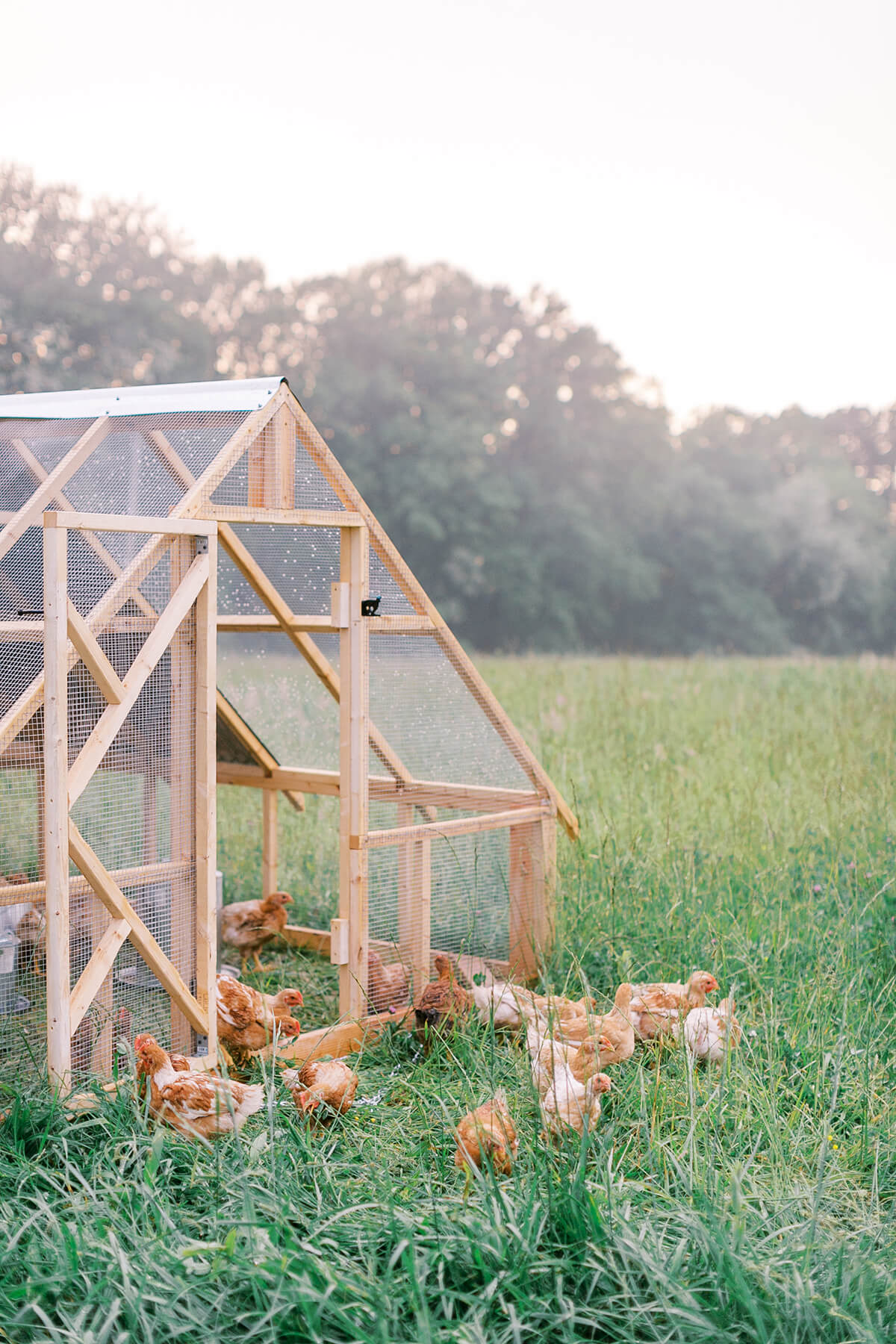
As most people rang in 2023 popping Champagne and making resolutions, Michael and Mary Neumann were slaughtering pigs.
“We’re not like a lot of our friends,” says Mary, laughing.
While in many ways the Neumanns are a typical family—four kids (ages 11, nine, six, and two), busy sport schedules, two dogs, and day jobs as owners of two ServiceMaster locations—life on their 40-acre farm in Fallston is anything but average. The Neumanns raise turkeys and ducks for eggs, and chickens for eggs and meat, and recently butchered 67 of the birds as a family. Some people raise an eyebrow at this unconventional way of life but, “It’s cool to have a dialogue with people that this is where your pork chop or your chicken comes from,” says Mary.
The Neumanns purchased the farm in 2021 from Michael’s parents, who had lived there since 1987. The farm’s name, MistyGlen, is both a play on Michael’s parent’s names—“Ms. De” (his mother’s nickname for Diane) and Glenn—and a nod to the mist that gathers in the fields. Those fields are visible from every room in the family’s Williamsburg-revival-style home, which overlooks fields, ponds, and a pool surrounded by perennial borders of native flowers.
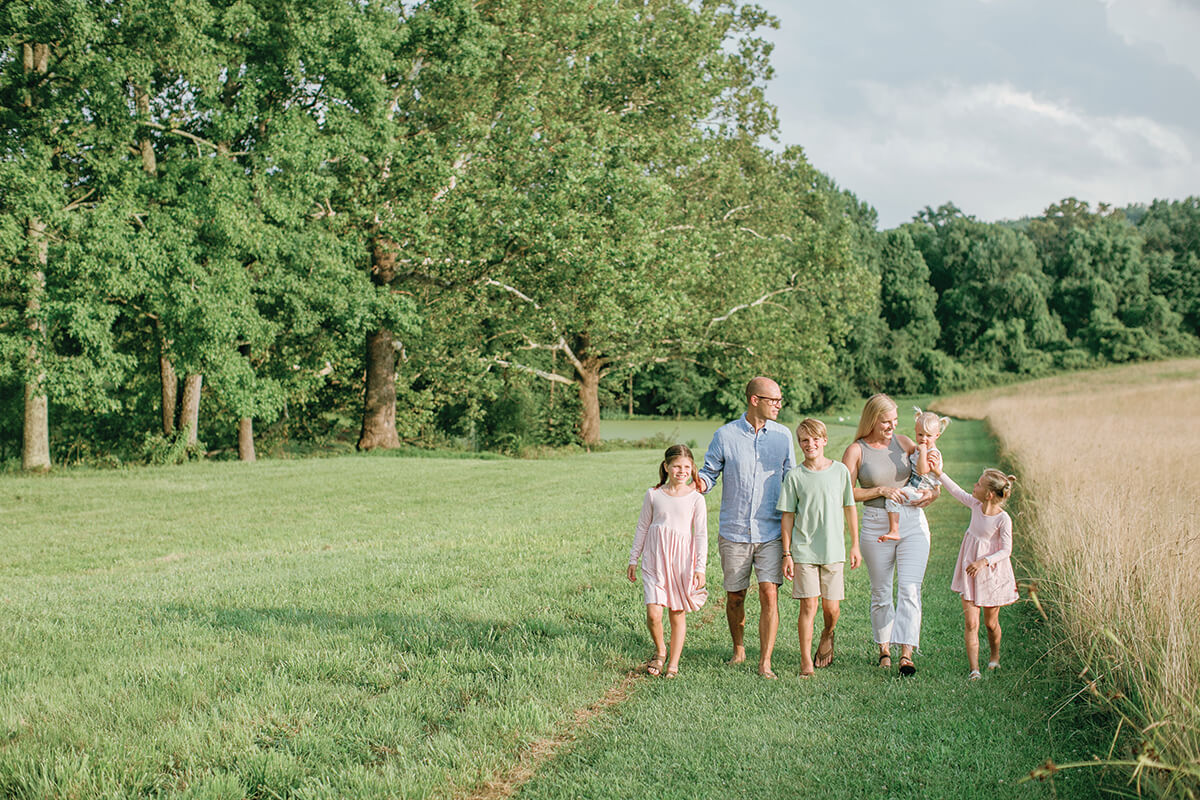
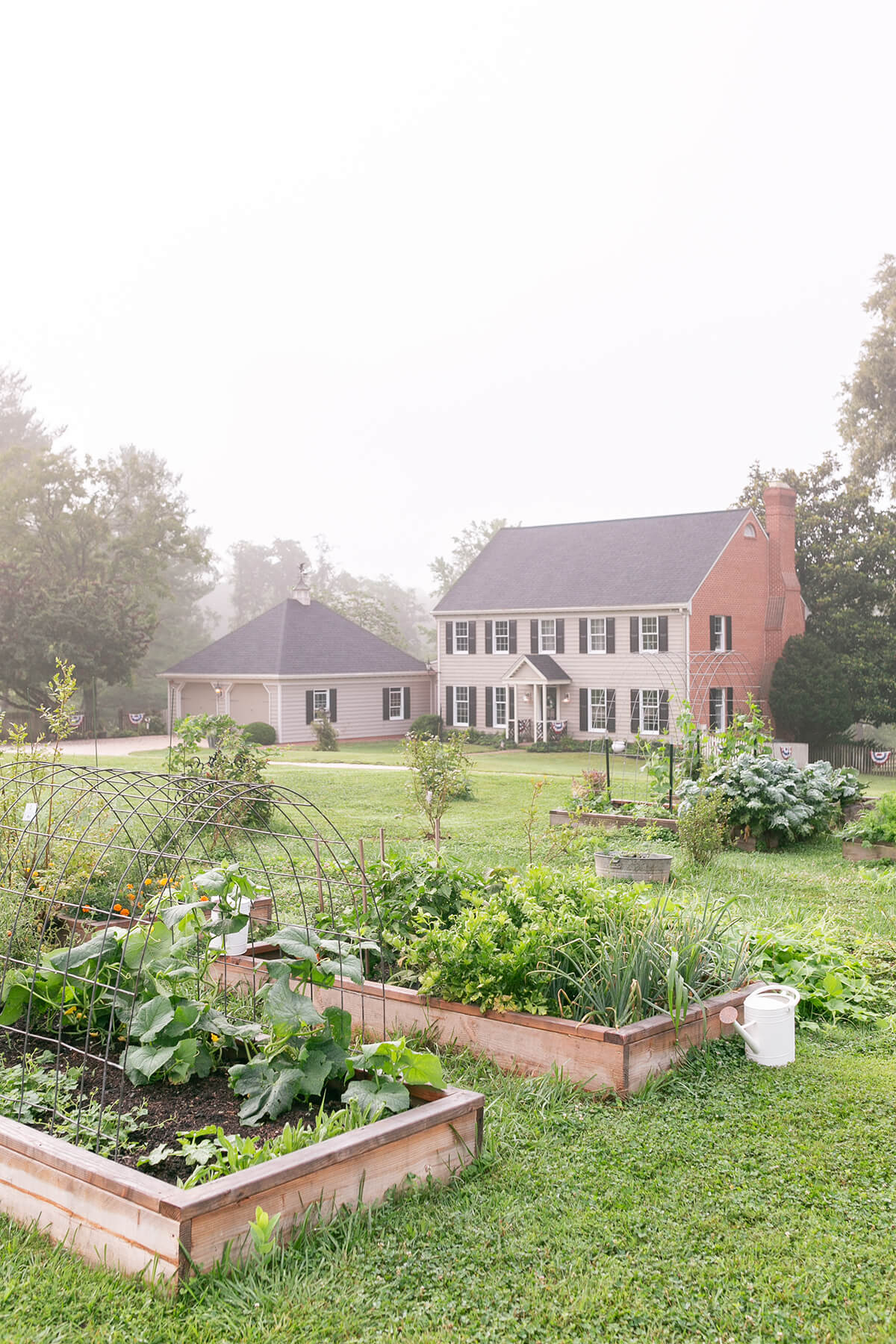
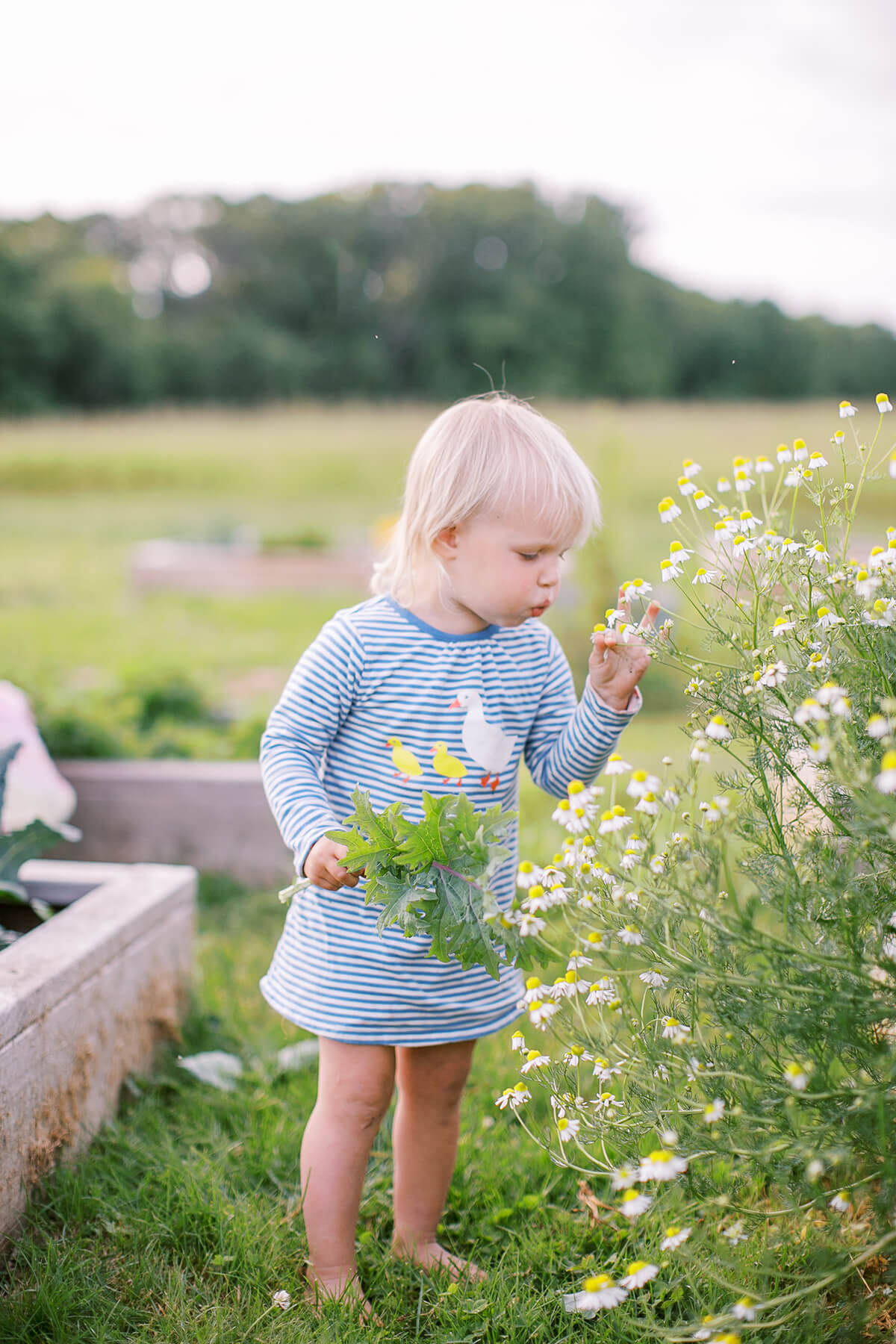
Mary grew up in northern Pennsylvania and as a child brought home two chickens from a school hatching project, as well as a one-month-old dairy calf she won.
“The animal life has always been for me,” she says. She adds that it was always their desire to live in a way that rebuffed the conventional food-system model, but during lockdown they became more intentional in their research. Books like The Soil Will Save Us, Beyond Labels, and Bill Mollison’s Introduction to Permaculture, sent the couple down the path to regenerative farming.
Based on the principle that healthy soil is the basis of a healthy planet, regenerative farming uses nature’s fertilizer (manure), native plants, and responsible growing processes. Animals are always grass-fed and humanely slaughtered. Eventually the soil heals and feeds itself.
“Our food system has become convenient and fast,” says Michael. “Our current system of monoculture crops and Big Ag is not sustainable and needs to change.”
“Regenerative farming is almost beyond sustainable,” Mary explains. “Regenerative agriculture means leaving the land better and more self-sustaining every year that we’re here.”

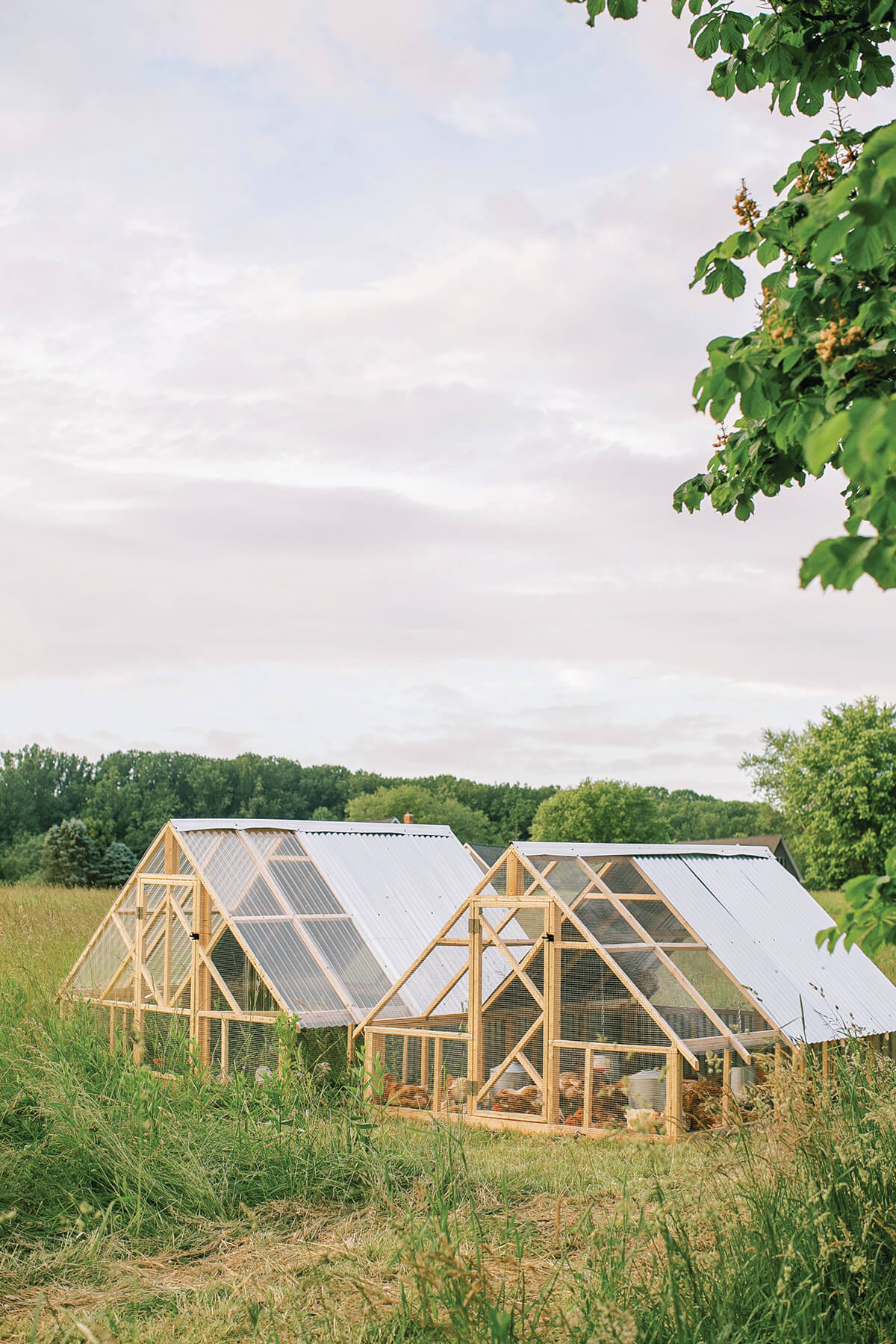
Enter the fowl, stage right. The Neumanns focus on raising many endangered heritage breeds, those that can do well with little human intervention. (They’re like the native plants of animals.) They have Heritage Blue Slate turkeys that are sold for meat but also as breeding pairs to preserve the species. Their chickens are a motley crew of Leghorns, Bresse, Ameraucanas, Wyandottes, Marans, Cream Legbars, and Brahmas. The fowl have a coop but spend much of their time free-ranging from two mobile “chicken tractors” that can be moved around the farm, naturally aerating, and fertilizing the ground as they go.
“Everything has a purpose,” Michael says.
The couple is starting small with what Michael calls “the old McDonald method,” of having a little bit of everything. The ducks keep the farm’s two ponds healthy by eating duckweed, which can snuff out native grasses. There are two beehives for pollinators. The Neumanns practice responsible mowing practices, waiting to cut their hayfields until after July 1 to allow nesting ground birds to thrive.
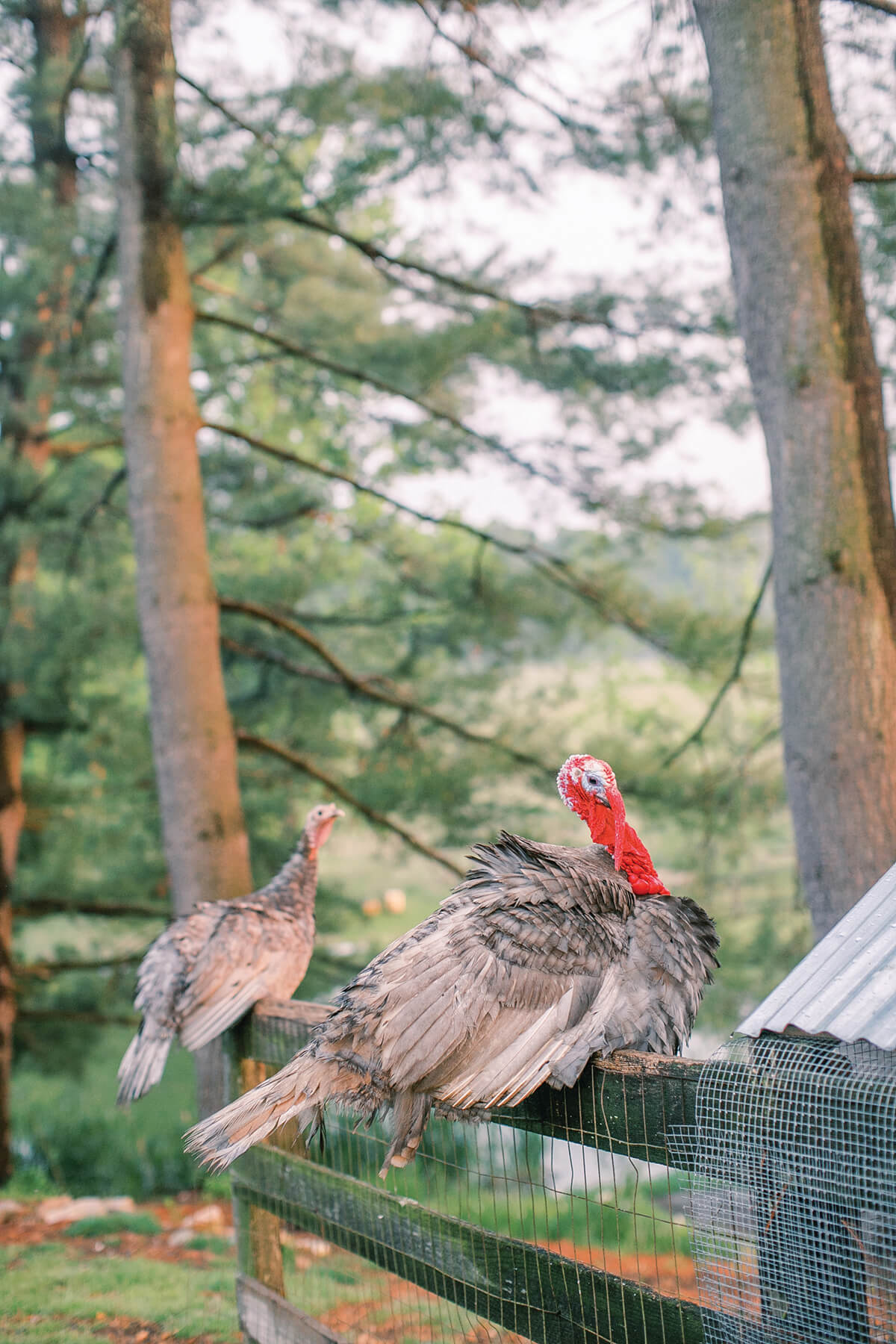
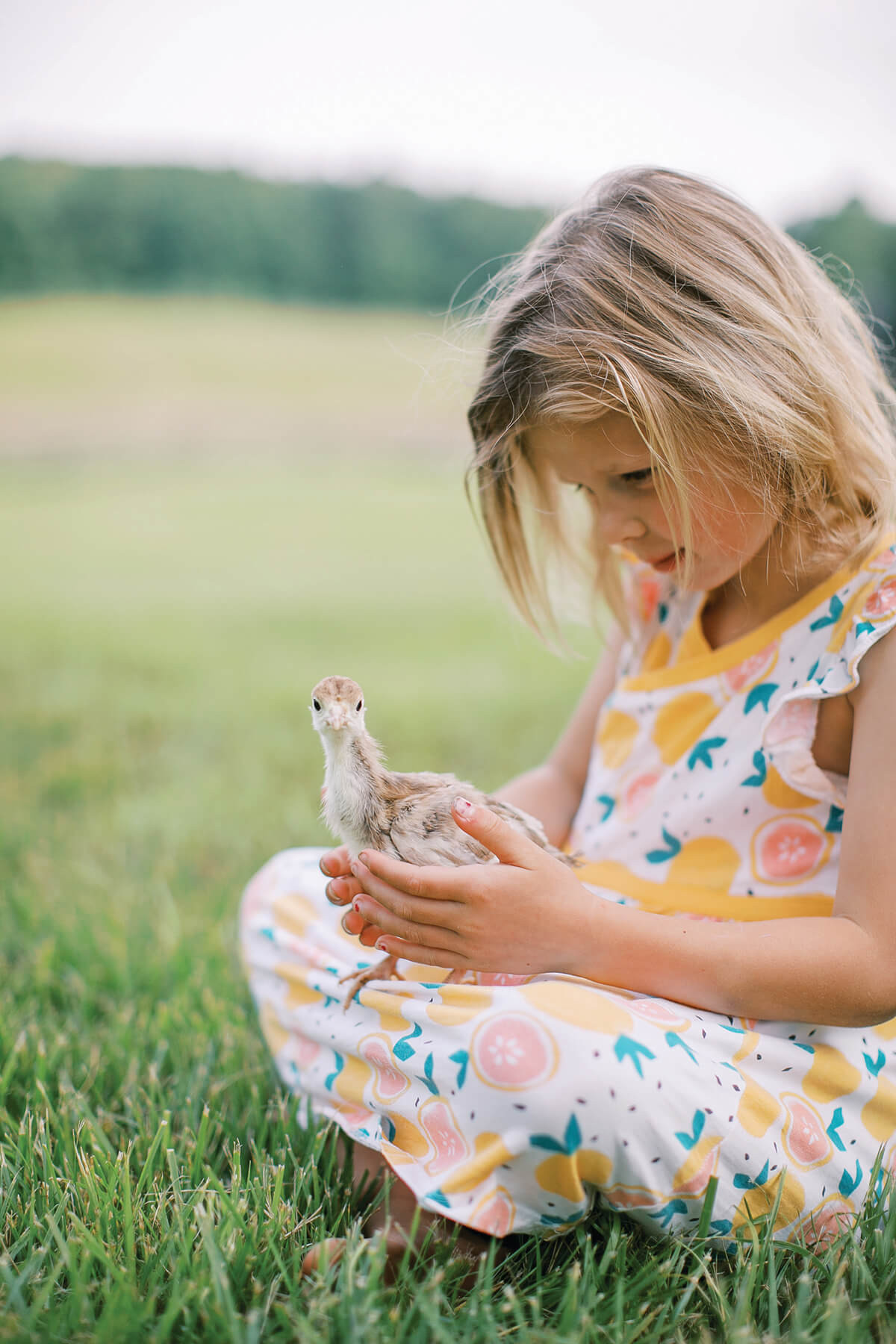
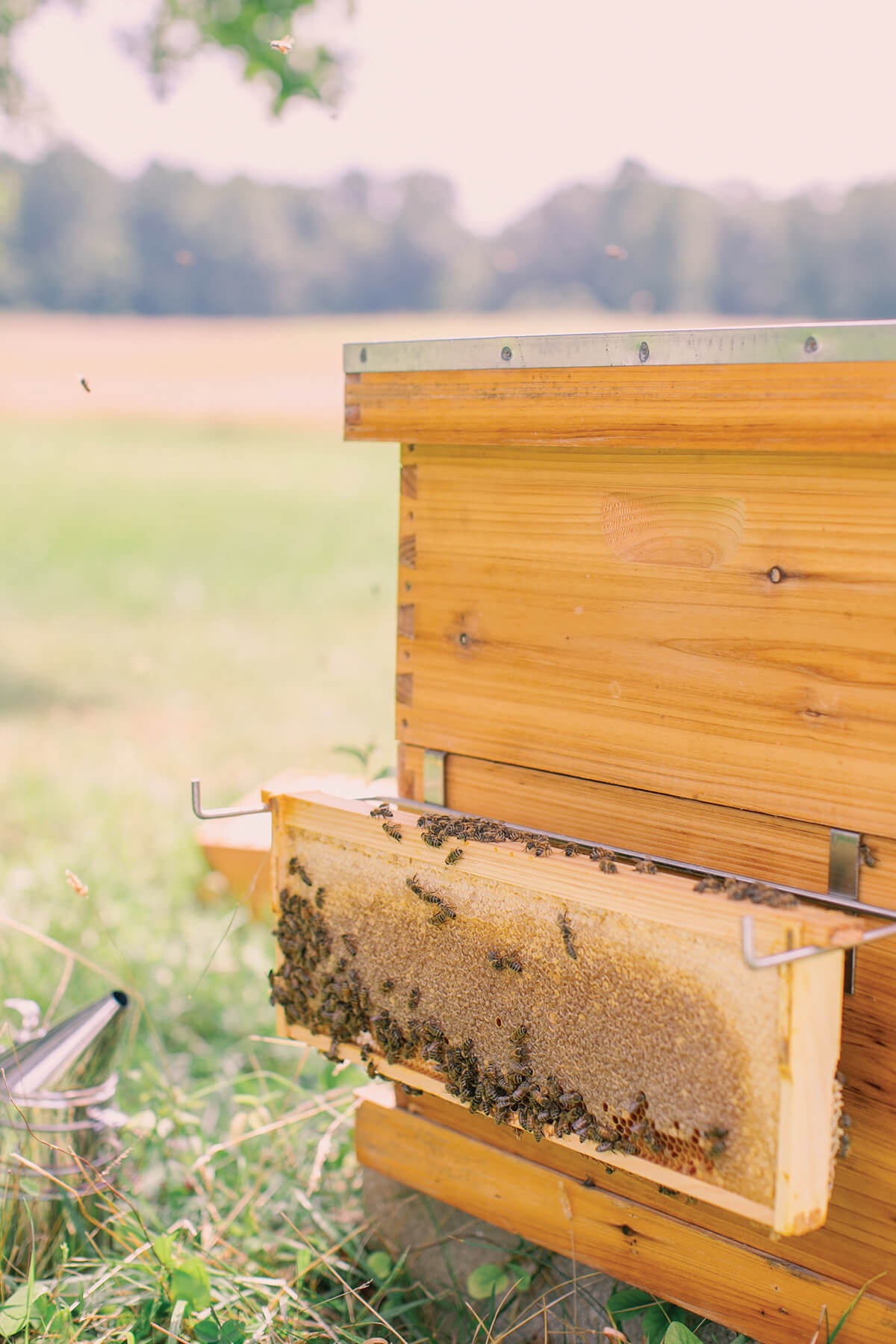
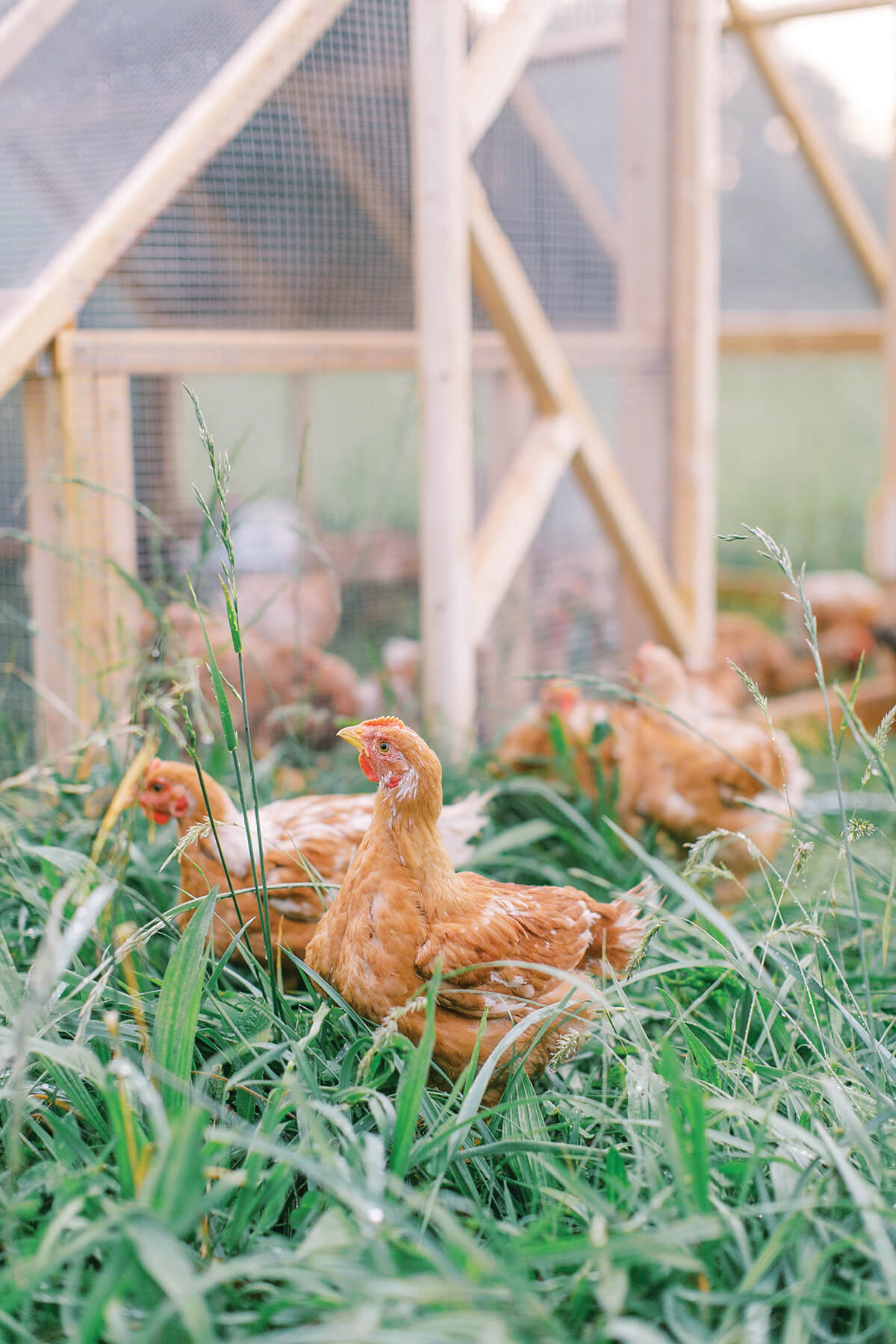
The Neumanns installed no-till garden beds—a key principle of regenerative farming is to leave soil undisturbed to encourage beneficial microorganisms to flourish—where they raise things like carrots.
“We focus on things the kids like and the family will eat and enjoy growing,” says Mary. “That’s a big part of why we do this, for the kids.”
The farm is a family affair. “For us, it’s important to teach our kids and teach the public that you can start where you’re at; this is attainable on a quarter acre,” says Mary.
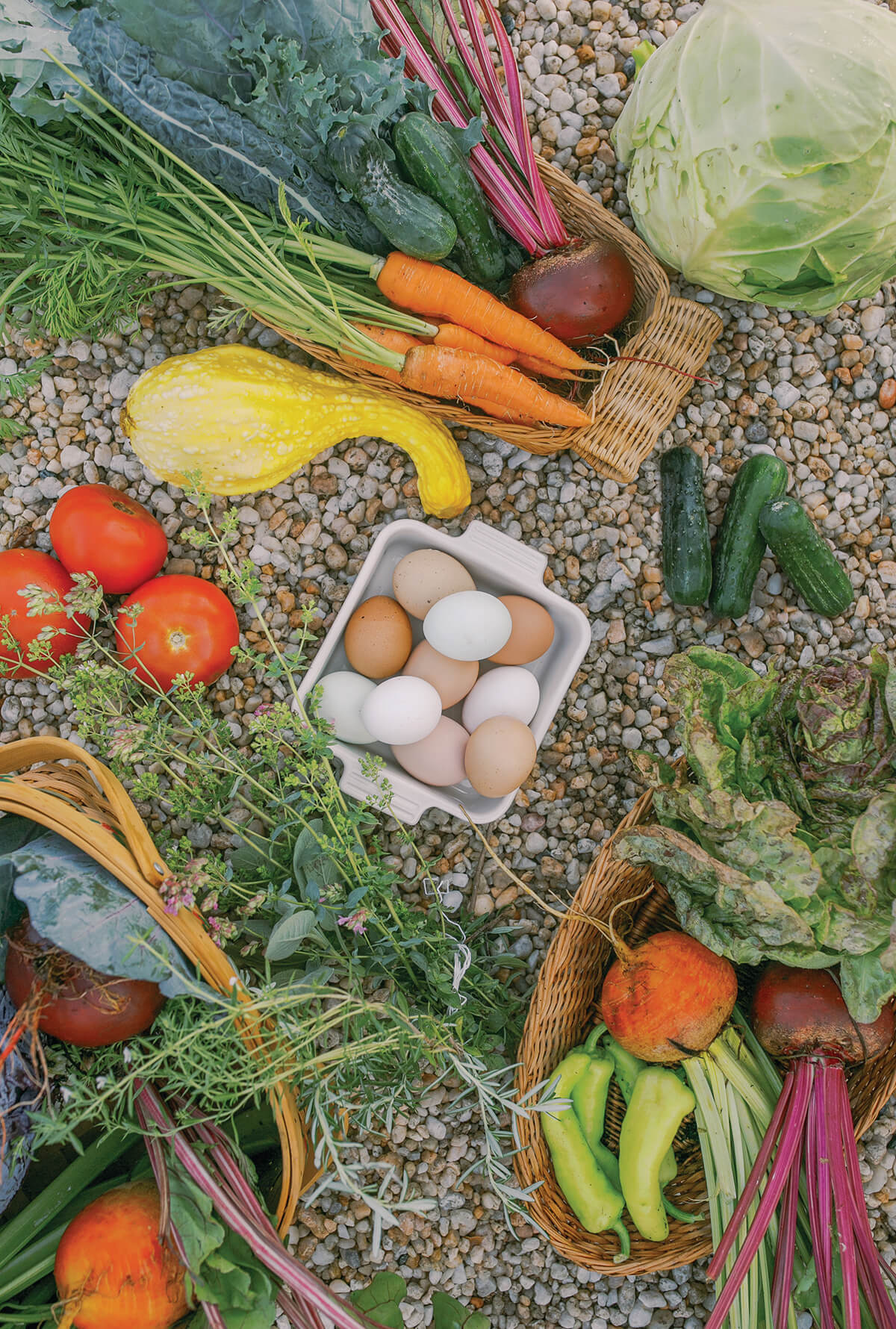
Although they can’t quite live off the farm, the grocery store is the absolute last place they go for food. It’s the farm first, then local farmers whose practices they know and trust, like Prigel Family Farm, where they purchase dairy. “Not everyone has 40 acres, but others can be aware of what regenerative farming and permaculture are so that they can make informed choices.”
A photographer, Mary catalogues the farm’s adventures and recipes on her Instagram account @MistyGlenFarm, hoping to share the lifestyle of regenerative farming and feed the public’s interest in healthy, sustainable living.
“Others have shown us the importance of more intentional caring for our land and the benefits to doing so, for us and others,” she explains. “I feel so lucky to have a community of like-minded people to surround me in this lifestyle, and wanted to empower and enlighten individuals that may not have that same opportunity.”
The Neumanns are just ramping up their operation. They are painstakingly restoring an 1860s bank barn and plan to move in pigs, followed by cattle and possibly sheep. Animals that intensely graze on small pastures and rotate to different grazing areas frequently are essential in a regenerative farm for natural soil health. Michael envisions the back field converted to a “food forest”—fruit and nut trees—and the front field for the grass-fed animals.
As the second generation of land stewards at the farm, breaking away from the vicious cycle of agribusiness—reap everything off the land, dump fertilizer on it, force crops to grow, reap, repeat—is a deeply personal mission.
“The land is our heritage and our legacy,” says Michael, pointing out that there is less open space in Fallston than when he was young. “We feel the weight of taking care of this little piece of land.”